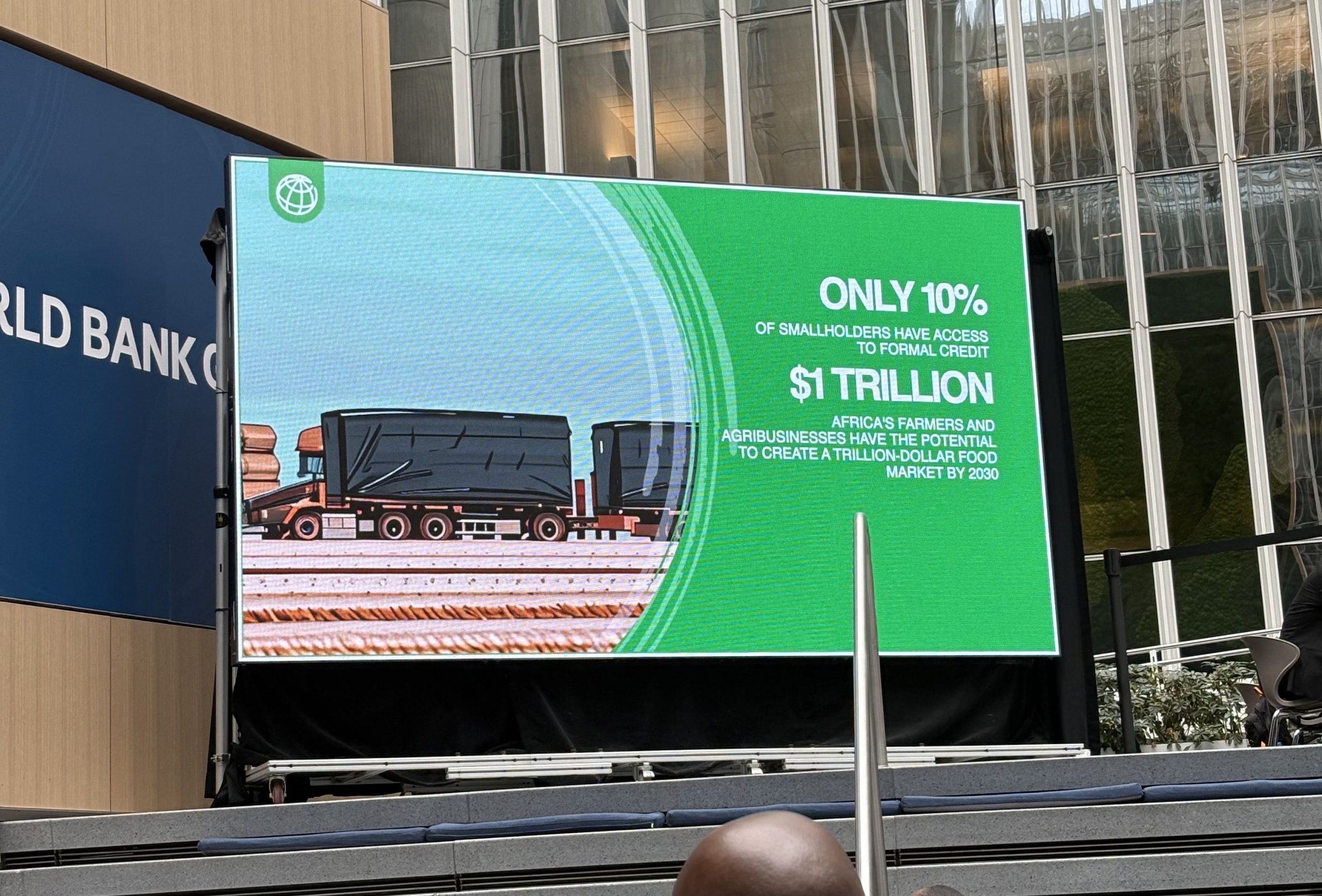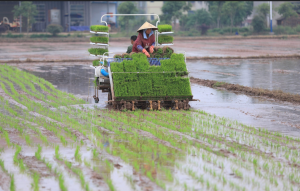By Lukman Yusuf
Global lenders and businesses are aligning around a new vision for African agriculture.
With smarter infrastructure, open innovation, and strategic partnerships, the continent’s farms could become its most powerful source of growth.
The 2025 IMF – World Bank Annual Meetings ended with a rare sense of agreement among lenders, governments, and investors. Across discussions, one message stood out: Africa’s next big leap could come from its farms. With the right mix of technology, infrastructure, and partnerships, agriculture can become a strong driver of growth and jobs.
The African Development Bank (AfDB) captured this new direction by expanding Mission 300; originally a project focused on electricity access; into a broader plan for job creation. The idea is simple: power alone is not progress. Real development happens when electricity helps people build businesses and earn a living. It shows a shift in thinking; development must connect infrastructure to opportunity.
That same thinking is shaping national policies in Guinea. At the annual meetings, the government talked about its progress in mapping farmland, improving land access for investors, and encouraging young people to see farming as a real career. These reforms aim to fix long-standing problems that have held back productivity and investment. Agriculture, once seen as basic survival work, is being reimagined as a modern, profitable industry.
There is also a growing belief that Africa does not need to start from scratch. The World Bank’s leadership called on partners to learn from countries that have already improved their farming sectors. Too often, new projects repeat old mistakes. Copying what works elsewhere; then adapting it – could deliver faster results.
Kenya’s tea industry shows both the strengths and limits of African agriculture. As the country’s second-largest source of foreign exchange, it proves how smallholder farmers can power an economy. The International Finance Corporation has supported Kenya’s tea farmers for decades with finance and advice. Yet most of the tea; around 90% is still exported in raw form, meaning much of its value is lost abroad. The next step is processing and branding more of it locally. That will need investment in factories, transport, and marketing areas where development banks and private firms can work together.
One message came through clearly: innovation needs infrastructure. Better roads, reliable electricity, and stable currency systems are not side issues; they are the foundation for progress. New seeds, digital tools, and modern techniques will not reach farmers if transport and power systems fail. Africa’s agricultural revolution will depend as much on good roads as on good research.
Still, innovation is moving ahead. Bill Anderson, the CEO of Bayer, announced a partnership with the World Bank to boost local seed production and crop insurance, alongside new research into nitrogen-fixing crops; plants that enrich the soil naturally and reduce the need for expensive fertilizers. In a notable move, Bayer pledged to waive intellectual property rights for Africa, allowing countries to use the technology freely. It reflects a growing belief that open access, not proprietary control, is key to scaling innovation across the continent.
Technology companies are playing their part too. Through its philanthropic arm, Google is developing a conversational AI tool that gives farmers instant advice in everyday language on crop care, soil management, and post-harvest storage. Working with local entrepreneurs, the company aims to tailor the tool to local conditions. The goal: to turn smartphones into personal farming assistants, closing the information gap that limits productivity.
Across the meetings, a clear consensus formed: transforming African agriculture requires progress on several fronts at once. Infrastructure, technology, finance, and policy all need to move forward together. Partnerships; not isolated projects will make the difference.
As Africa’s population grows and cities expand, modernising farming has become urgent. Agriculture is no longer just about feeding people; it is about creating jobs, earning foreign exchange, and strengthening economies. If the commitments made in Washington DC turn into real action, they could mark a turning point: the moment when Africa’s farmers move from survival to success, and agriculture becomes the engine of the continent’s future.



